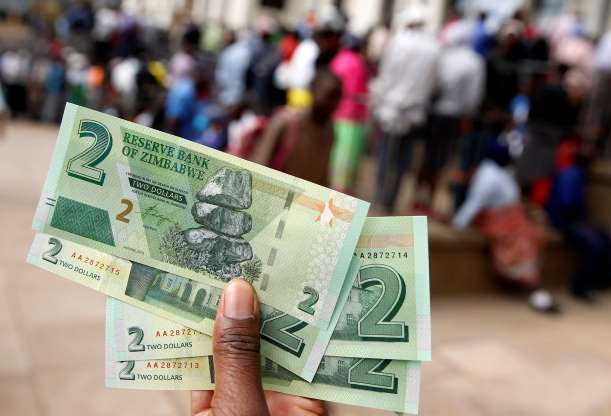
Order suspending trading on Zimbabwe’s stock exchange takes effect

Trading on the Zimbabwe Stock Exchange was suspended on Monday following an order by the government last Friday which also halted transfers on mobile money platforms which are crucial to the country’s retail trade.
The order, according to the government, is geared towards protecting the country’s currency, the Zimbabwean dollar, which has been in free fall in recent months.
“Whilst we await guidance from our regulators on the operational modalities going forward, we notify out stakeholders that trading has been suspended until further notice,” Zimbabwe Stock Exchange (ZSE) chief executive Justin Bgoni said in response to the order.
The country’s Permanent Secretary in the Ministry of Information, Nick Mangwana faulted mobile money transfer platforms for causing the gap between the market exchange rate for the Zimbabwean dollar and the official exchange rate.
Mangwana said that the government had “impeccable” intelligence that mobile-based phone systems were scheming with the help of the Zimbabwe Stock Exchange, knowingly or accidentally, in illegal activities which were crippling the economy.
Mangwana went on to distinguish one service provider as the “central pivot of the galloping black market exchange rate”. This service provider’s actions were causing persistent price increases of goods and services that are troubling the economy and causing untold hardship to the people of Zimbabwe, he said.
In a rejoinder, Zimbabwe’s central bank clarified that mobile money transfers had not been completely stopped, but limited to about $87 per day.
President Emmerson Mnangagwa has blamed Zimbabwe’s currency problems on political critics and greedy private sector players.
He said that the currency was under attack from businesses that were constantly raising prices and this was part of a wider political scheme against his government.
Zimbabwe’s local currency has plunged on the black market fuelling price increases and pushing inflation to 765 percent.
Zimbabwe’s economy, facing one of its worst crises in decades, is grappling with runaway inflation and spiralling commodity and fuel prices amidst a food shortage. Additionally, the nation’s public sector has faced a number of strikes, particularly by medics due to low salaries and poor working conditions.






